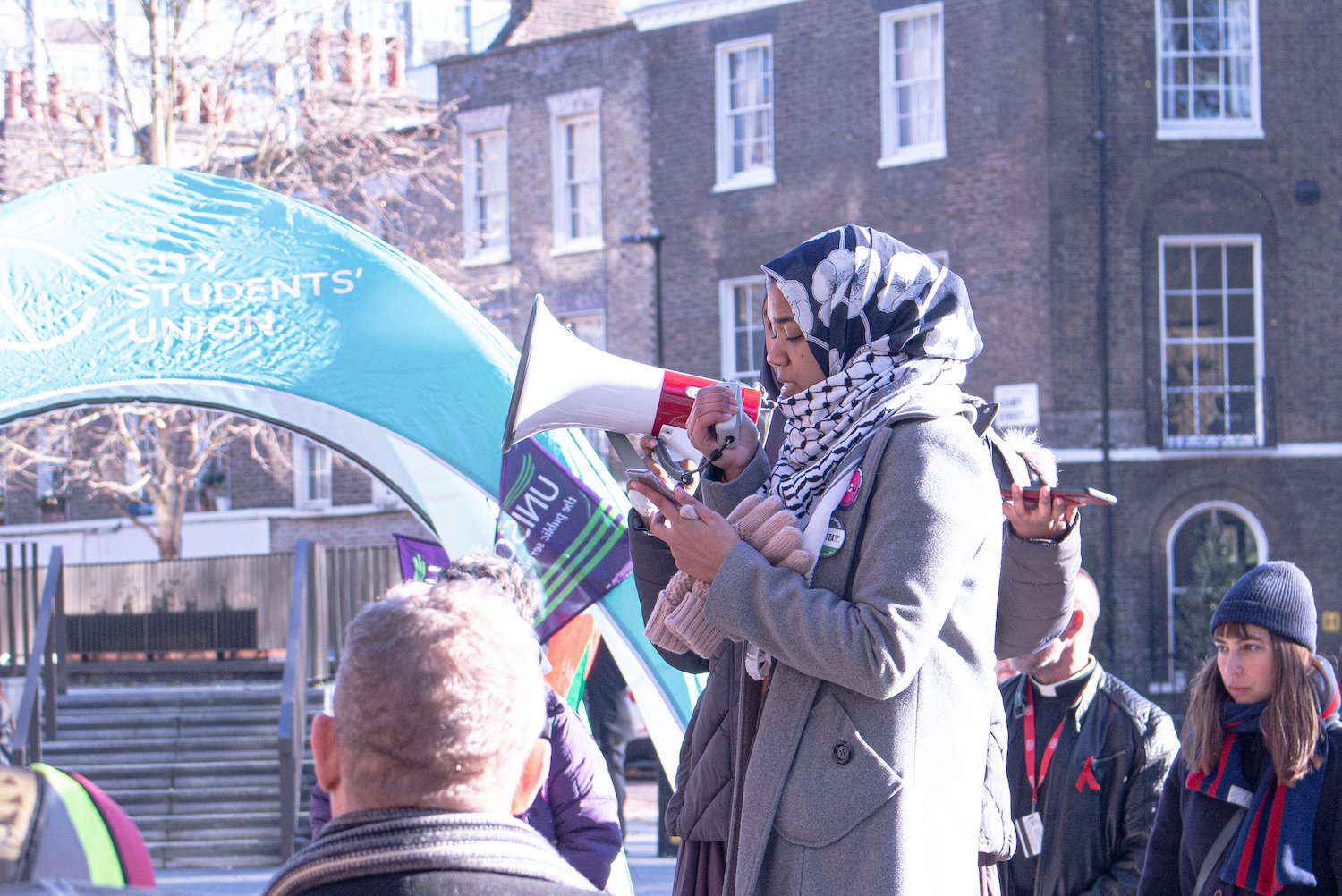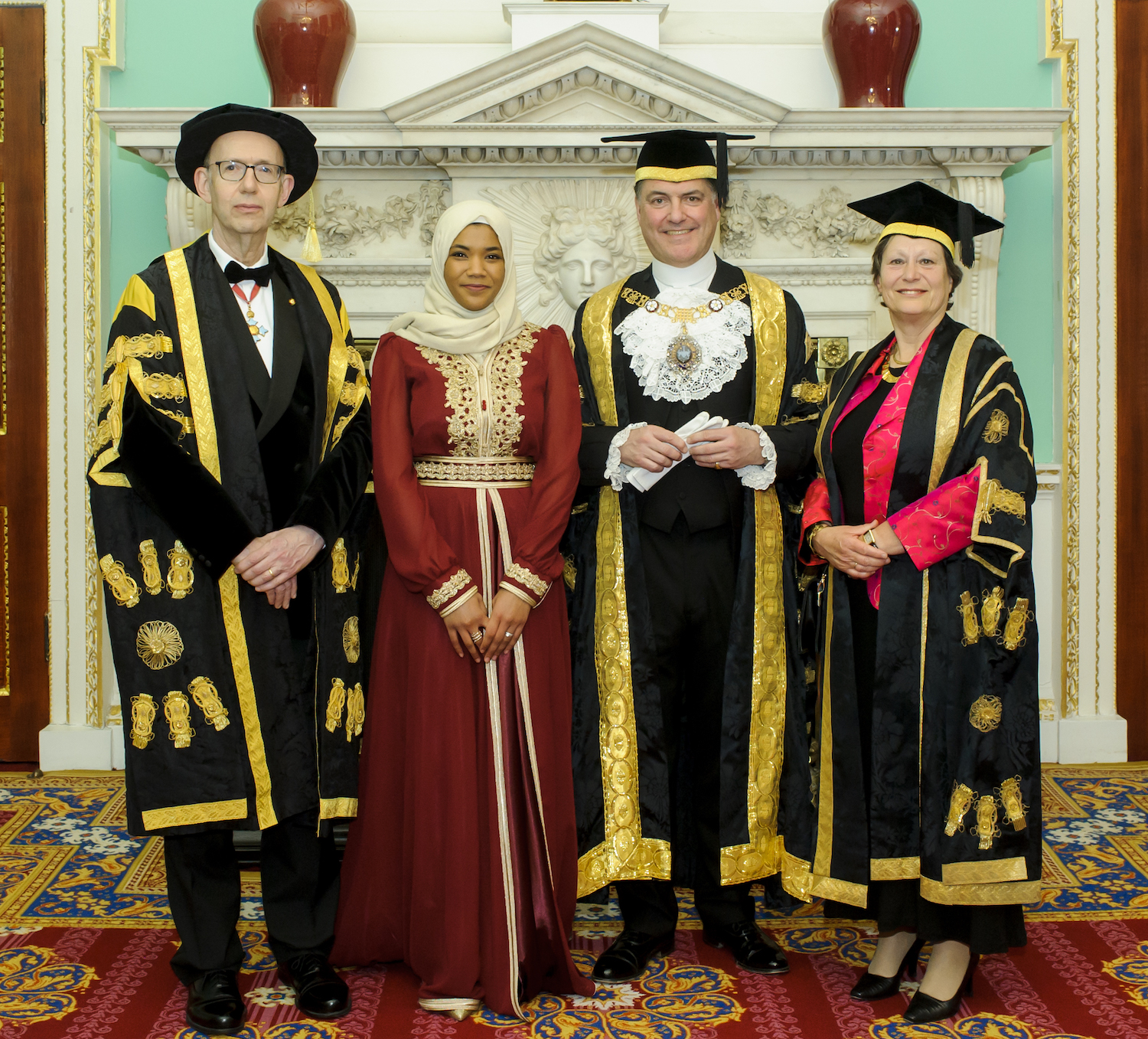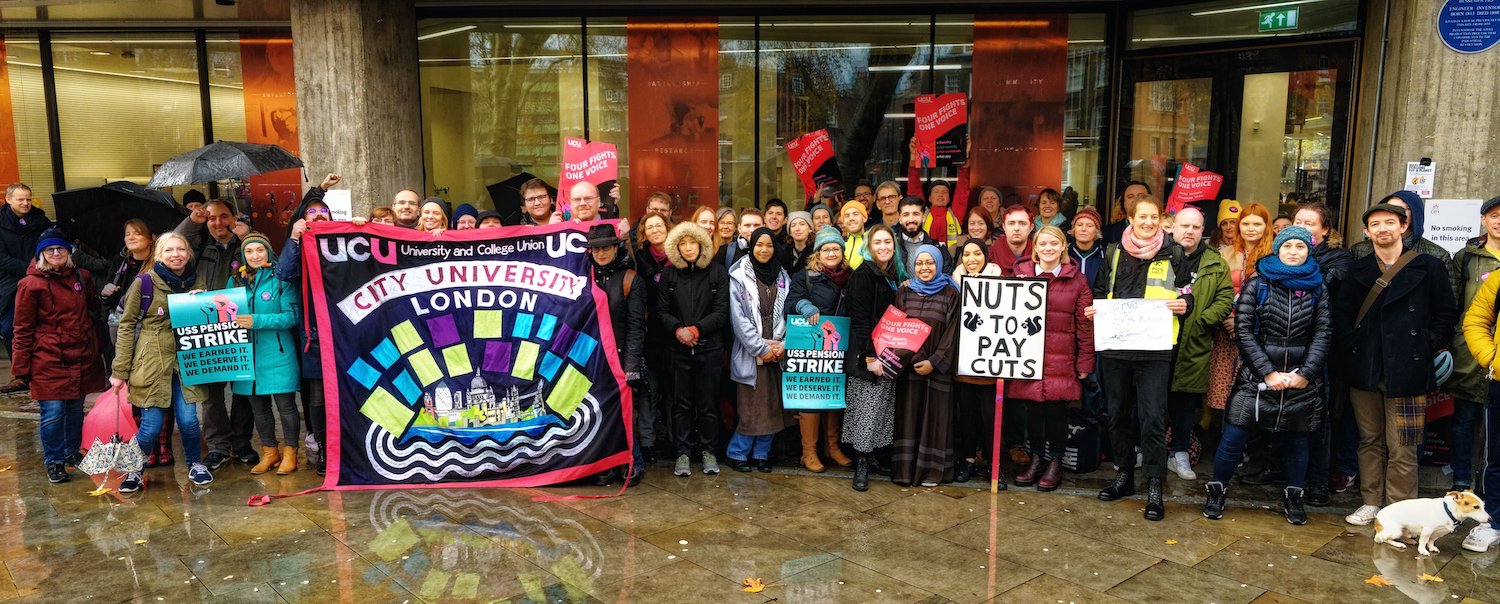Why the executive no-platforming of NUS President Shaima Dallali is underlined by Islamophobia, particularly when Palestine is in the frame.
Dates of concern
The urgency for wisdom in balancing the rights and protections of all student groups appears to have been mowed down in the removal of Shaima Dallali from her post as president-elect and the de facto renewal of the IHRA definition of antisemitism in the National Union of Students (NUS).
In July 2022, the Institute for Race Relations, the oldest race relations body in Britain put forward a submission to the inquiry on antisemitism in the NUS. The submission, made By Liz Fekete and Frances Webber, adhered to the submission guidelines to note all dates of concern. Interestingly, they highlight 26 April 2017, the date the NUS adopted the IHRA (International Holocaust Remembrance Alliance) definition at the National Conference in their submission. This is because they foresaw, as have many legal and academic specialists, including the original author of the definition, the far-reaching consequences incurred of “a bifurcated approach to racial justice” ensuing from a highly contested definition that encroaches on the freedom to criticise Israel.
Warning of the inevitable “deterioration of relations” between Black/minority and Jewish student organisations, they conclude by urging the independent lead to consider “the wisdom of the NUS incorporation of the IHRA definition into policy-making and its impact on community cohesion on campus”. These warnings were grounded in a clear recognition of antisemitism and a duty to protect Jewish students but were equally mindful that antisemitism could not readily, presumptively or instrumentally be conflated with principled anti-Zionist critique of Israel. As with countless other objections to the IHRA definition (namely the way it insulates Israel’s colonial project from legitimate critique), concerns it would impinge on freedom of expression are being widely realised. While the case of Shaima Dallali intersects with these same contentions, this is not a straightforward case of curtailed freedoms. Rather, as the inquiry process indicates, it is steeped in racialised rationale.
Shaima Dallali is a Black Muslim woman and was voted in as President of the NUS in March 2021. However, by late March, her presidency was being called into question on account of a tweet dating some 10 years prior which referenced a historic battle, ‘Khaybar’, in which Jewish tribes were fought for reneging on an earlier pact with Prophet Mohammed (pbuh). Hash-tagged #Gaza, this was tweeted in reference to the Israeli offensive in Gaza in 2012.
Dallali unreservedly apologised for the tweet prior to her electoral campaign, acknowledging it as a misconception ‘of the conflict’ from her teen years. It has nonetheless been routinely invoked, alongside other published allegations, overshadowing the ‘independent inquiry’ that was to follow and has become the lynchpin allegation in her dismissal.
Instigated by the UJS, the UK’s largest body for Jewish students and self-avowed pro-Israel interest group, the inquiry purported to examine allegations of antisemitism both with regard to Dallali and within the NUS at large. Facilitated by governmental and political pressure and with full compliance of the NUS, the inquiry was led by Rebecca Tuck KC. NUS President Dallali welcomed the investigation, but in November, following a confidential disciplinary under the NUS Code of Conduct, it resulted in her dismissal from post.
Dallali responded by initiating a legal case on 2 November 2022 on grounds of discrimination. Some unions have sought to disaffiliate from the NUS and many students have been quietly aghast at how a democratic mandate has been overturned without the customary vote of ‘no confidence’. Mired in multiple procedural irregularities and the exclusion of key constituencies and viewpoints, the dual inquiry has been discredited from the outset. Her case has recently resurfaced in view of recent Employment Tribunal proceedings against the NUS on 17 March 2023. Here, I consider the racialised hierarchies and culture of surveillance such processes have relied upon and the deeply invested political context in which they are being institutionalised.

Genealogies of surveillance
In seeking to tackle one form of racism, in this case, antisemitism, the inquiry has arguably further entrenched others, namely Islamophobic anti-Black racism. From the outset, it has relied upon a racialised stop-and-search culture of targeting Black activists. The excessive scrutiny to which Dallali is subject (a point conceded in the report p.109) runs through the inquiry’s prejudicial approach to the investigation.
Despite a likely confidential disciplinary, full public disclosure of alleged complaints ahead of the inquiry meant Dallali was subject to a publicised parade of racialised smearing. Why would any inquiry openly list allegations for public scrutiny before investigations were complete? This informed what appeared to be foregone conclusions – which continued after Dallali’s dismissal, generating, after legal scrutiny, some less publicised forced retractions. Yet for the most part, the extent of racialised sullying provided misleading but useful subtext in the case against her.
For example, in reference to Dallali’s dated tweet, the uncritical repetition of media references to Khaybar as an isolated “massacre’/expulsion” of Jews by Muslims – incessantly cited even 10 months in – anchored Dallali to a highly erroneous slant on historical events. Khaybar comprised a series of battles precipitated by political treason, not religious animosity, and concluded in a negotiated agreement rather than expulsion. Nonetheless, the focus on antisemitic malice effectively became tethered to Dallali’s current pro-Palestinian outlook. These types of racialised narratives, repeated verbatim, work to freeze viewpoints. In this case, fixing Dallali as predisposed to antisemitism a key feature in the APPG definition of Islamophobia (p.31).
This raises the question as to why the inquiry and disciplinary have insisted on keeping in focus a notably dated and misguided tweet (for which Dallali unreservedly apologised immediately), that run counter to her present anti-colonial political attitudes?
While the disciplinary process has remained blanketed on grounds of confidentiality, the genealogy of the inquiry certainly bears further scrutiny. What is required is not further trawling of Dallali’s digital footprint but of the presuppositions underlining the allegations against her, as well as an examination of the historical consistency with which NUS executives are investigated. Dallali’s case throws up a familiar pattern of racialised scrutiny directed at vocal Muslim proponents of Palestinian liberation.
Indeed, to what extent perceptions of Muslimness guaranteed these alleged “breaches” – we don’t know what these breaches are exactly – is especially relevant. Why among the allegations listed, does raising funds for a Muslim charity or referencing the global status of a Muslim scholar, albeit at times controversial, merit investigation into Dallali? What type of racially associative leaps are being enacted in this process? This is a question that underpins the many allegations levelled in legal proceedings against the NUS.
These considerations remain paramount because, as Dallali’s legal proceedings reveal, a number of allegations of antisemitism were, in fact, concluded to be simply “discourteous”. They were nonetheless projected in the public sphere, planted alongside a broader inquiry into antisemitism and for some time, left entirely intact without any indication of whether they were upheld.
In this context, it is not simply the question of dismissal that is at stake, but a reinforcement of racialised discourses advanced by right-wing think tanks (and a spectrum of Zionist outfits promoting Islamophobia) that equate Muslim political activism (particularly on Palestine) with antisemitism. This is not without precedent in campus politics.

Instituting racialised hierarchies
Muslim student experiences relating to NUS/student politics over the last three decades remain sparsely documented. To date, there has been no independent inquiry into Islamophobia within the NUS, although patterns of disenfranchisement, racialised smearing and over-scrutiny abound. Recent calls for NUS to conduct an equally vigorous inquiry into Islamophobia in the NUS have been met with silence, as have concerns that no institutional support was forthcoming when upon election, Dallali suffered a barrage of abuse.
These concerns reveal a racialised discrepancy in the way students are accorded status as victims or perpetrators of racism. While this discrepancy is not unique to this inquiry, as my own research documents, it can be discerned at many levels in this inquiry which intrinsically reproduces a hierarchy in the way antisemitism and Islamophobia are addressed.
As national umbrella societies for their respective faith communities, the status of both the UJS and FOSIS should be equally respected. Of course, for an inquiry on antisemitism, Jewish students (aligned and non-aligned to the UJS) would be expected to have greater input. Yet, this input is entirely disproportionate for an ‘independent’ inquiry’; UJS members comprise key complainants, instigating an inquiry and determining its lead and Terms of Reference (ToR), while FOSIS and the views of the British Palestinian Committee – the latter relevant due to the targeting of Palestinian advocacy throughout the process – among others, have either been ignored or dismissed, sparking complaints of negligence and due process.
Representation of ‘adversely impacted groups’ and their concerns, by all accounts, appears woefully unfulfilled. Concerns about Islamophobia raised by Dallali, have not been pursued, although the ToR (4.2), acknowledged that as a “Muslim woman of color” Dallali may be “unfairly targeted”.
In this regard, the inquiry is reminiscent of earlier campaigns in the NUS which were far-reaching in enabling the racialised hypervisibility of Muslim students, while excluding them from consultative investigations. Except at that point, there was relative subtlety in efforts to institutionalise the conflation between antisemitism and anti-Zionism.
Similarly, the inquiry report does not list or cite a single Muslim organisation. This is unsurprising given, in the early stages of the Dallali investigation, Muslim organisations such as FOSIS and MCB were blocked from consultation. Following her dismissal, this refusal to sufficiently engage with Muslim students has not changed.
Why this may be the case can perhaps be gleaned from the FAQs which insist that the investigator “was able to take specialist advice from organisations and individuals who are trusted within those marginalised communities”. Such inferences would be deemed out of place in any inquiry, let alone one tackling racism. Filtering through the ‘marginalised’, it is highly reminiscent of a post 9/11 approach to managing ‘good’ and ’bad’ Muslims. Indeed, on what basis are Muslim organisations or individuals determined as “trusted” in this inquiry? In view of the lack of transparency in the report, we have no idea who the “specialist” “trusted” ones are.
Like earlier campaigns, this grossly skewed process affirms a view that the absence of meaningful consultation with Muslim and Palestinian constituencies relates to their culpability in alleged antisemitism. This certainly bears out in the final report where, although cognisant of Islamophobia (referenced on 20 separate occasions), there is a peculiar absence of Muslim/Palestinian voices. For Palestinians in particular, one might think their views would be integral to an inquiry that implicates their right to self-determination with antisemitism. It is telling that the only occasions in which Muslims and Palestinians are given voice are through secondary sources that affirm antisemitism within those communities (p.66/67 of the inquiry report).

Operationalising IHRA: No-platforming Palestinian advocacy
The furore surrounding Dallali’s tweets have taken centre-stage and proved a useful distraction from the political context in which her dismissal has been legitimised.
Allegations against Dallali have pivoted on her refusal to abide by a widely contested IHRA example-centred definition of antisemitism in which criticism of Israel predominates. Of the contested compilation of allegations, a number relate to pro-Palestinian activism, including criticism of Zionism as a political ideology. While such resistance is often conflated with antisemitism, it is in fact directed towards Israel’s apartheid and settler-colonial regime. Such legitimate non-violent forms of resistance to Israel have long been opposed by Dallali’s critics.
As many other lesser-known examples in British universities attest, the application of the IHRA has become a key means to regulate critique of Israel, a point dismissed in the inquiry report. In spite of objections to the definition among submissions to the inquiry, and its expiration as democratically mandated policy, it was nonetheless established as a guiding reference in Dallali’s case. Contrary to the NUS’s own guidelines stipulating a simple majority vote, it was renewed internally through the NUS administration on seemingly arbitrary grounds. The inquiry has provided a useful springboard for its institutionalisation.
It is not incidental that Dallali’s dismissal has enabled her key critics to formally cast antisemitism slurs on the entire electorate that voted her in. This is indicative of a broader ongoing campaign that, rather than seeking to merely oust a single critic, attempts to delegitimise advocacy for Palestinian rights as a whole. This follows a global pattern which has seen activists and academics who support the Boycott, Divestment and Sanctions (BDS) movement to pressure Israel to comply with International law subject to prolonged harassment. Indeed, for an inquiry that has claimed a “hostile environment” for Zionist Jewish students, it has done well in nurturing a culture of hostility for anti-Zionist critics, particularly those already subject to racialised targeting. This is entirely in keeping with state-led interventions that seek to crack down on pro-Palestinian activism.
Dallali’s executive dismissal is tantamount to no-platforming Palestinian advocacy, except through pseudo-legal means. The IHRA is non-legally binding, but as increasingly documented, is being wielded punitively as if it has legal powers. In this inquiry, the use of the IHRA can be seen to institutionalise patterns of racialised regulation that precede and function alongside, its adoption. As such, it assumes a disciplinary function to regulate the parameters of anti-colonial, anti-Zionist politics, as evidenced in the inquiry recommendations.
Reconciling anti-racist practice
For a war-on-terror-burdened generation, already subject to the ‘counter-terror’ machinations of the state, the excessive scrutiny of Dallali is entirely in keeping with the racialised surveillance of Muslims under Prevent. It is, however, entirely at odds with NUS’s own policy focus, critical of Prevent and its securitisation of Black and Muslim students.
In this context, the IHRA becomes an addition to the surveillance regime regulating Muslim political expression. This is especially egregious when the NUS has previously committed to an equally non-binding definition of Islamophobia. In the absence of greater transparency, in what shape this commitment to the APPG Islamophobia definition was maintained, remains unknown.
This hodgepodge of policy and practice reflects not just a conflicting approach to racial justice, but enables the racialised governance of Muslim, Palestinian and Jewish activists speaking against Israeli violence. It further entrenches anti-Palestinian/Islamophobic practices but does little to dislodge antisemitism itself. In short, Dallali’s public ‘lynching’ does not read as a step to overcome antisemitism but a regulatory intervention that works to inhibit particular criticisms of Israel’s settler-colonialism and to ease Zionist-settler discomfort.
While Dallali’s removal has been applauded by some, this does not equate with a successful inquiry, not least because it is counter-productive to champion the struggle against antisemitism through an inquiry that hinges on racialised presuppositions throughout.
In its less than conciliatory approach and contrary to its stated aims of ‘restorative action,’ the inquiry spotlights the precarity of trumping one ‘side’ over the other, ensuring vulnerability for all. Privileging the political commitments of one group over another is rarely a path to racial justice, in this case, only serving those that resolutely advocate for Israel. Perhaps Dallali’s case will challenge this.
Special thanks to Dr Khadijah Elshayyal, Professor Rebecca Gould, Dr Sara Husseini and Dr Shehla Khan for reviewing earlier versions of this article. Any discrepancies or errors are mine.
Featured photo: Shaima Dallali
